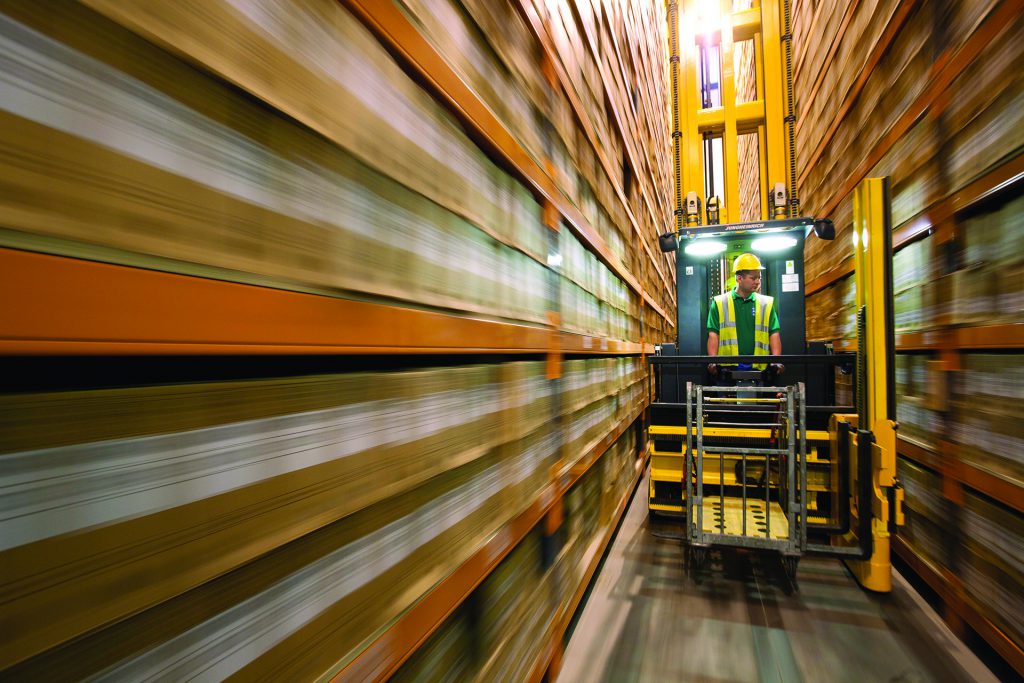Automation is a hot topic at the moment. It seems like every other day a news story pops up about how robots are set to take our jobs in the not so distant future. Just this past week, a report from accountancy firm Deloitte and think tank Reform, suggested that robots will take 850,000 public sector jobs in Britain by 2030.
For some, this may invoke bleak visions of an Asimovian future, for others – a welcome step towards utopia. But, should you be worried for your job? We’re taking a look at a couple of common office supplies jobs or roles to see where they stand.
We’re using the BBC’s ‘Will a robot take your job?’ tool which compiles a list of over 300 job titles and categorises them according to their risk of automation. The tool calculates a job’s susceptibility to automation using nine key skills required to perform it, ranging from social perceptiveness to manual dexterity.
Let’s take a look.
Automation on the Purchasing Side

Whilst there aren’t necessarily any jobs that are wholly dedicated to sourcing office supplies, we’ve selected a few jobs or job areas that the responsibility typically falls to.
Buyers & Procurement Officers – 64% likely
While they may not be directly involved in picking and ordering office supplies, buying and procurement professionals will be aware of what suppliers are being used and may be involved in setting up and maintaining the account.
Professionals who work as buyers or procurement officers are considered at a fairly high risk of automation (64% likely). This will come as worrying news to the some 72,000 employed in this profession.
Office Manager or Office Supervisor – 1% likely
Luckily, it’s good news for the estimated 214,000 Office Managers and Office Supervisors in the UK! At 1%, it is highly unlikely that these jobs will be automated in the future. This is likely due to their high level of contact and assistance to others, which requires a high level of social intelligence.
Finance & Accounts
This may be a bit of a tenuous one, but individuals in finance and accounts may sometimes have control over a business’s office supplies. And unfortunately, the outlook doesn’t look good for finance and accounts on the whole. The range of job titles related to finance and accounts looks like this:
- Finance officer – 97% likely
- Financial administrative worker – 97% likely
- Financial & accounting technicians – 96% likely.
However, according to the research, the UK’s 241,000 financial managers and directors are pretty safe, with just a 7% likelihood of automation.
Marketing – 33% likely
Marketing is another area that occasionally has responsibility over office supplies, especially when branded products come into the mix. Fortunately for them, they’re pretty safe. At 33%, it’s not very likely that their jobs will become automated.
Automation on the Supply Side

So what about the supply side? The people (like us) who supply your products and services. Let’s take a look at some of the common job areas.
Warehouse operative
This is a tricky one due to the wide range of tasks that warehousing, storage and stock control professionals are responsible for. As a result, the research has indicated a number of these jobs as ‘too close to call’, with storage and warehousing managers at 59% likely and fork-lift drivers at 48%.
Sales/Customer Service
Sales and customer services is another mixed bag. It’s largely split depending on the nature of job. For example, if you’re in telesales, you’re job is the most at risk of automation (at 99%!) but if you’re a Business sales executive, it’s unlikely (at 39%).
Customer service workers are also at risk, with a 91% likelihood of automation. However, Customer Service managers and supervisors are much less susceptible at just 1%.
Delivery Drivers
An important link in the supply chain – delivery drivers, messengers and couriers are another mixed bag. On one hand, van drivers and large goods drivers sit at 57% and 41% respectively so are considered ‘too close to call’.
Couriers and messengers on the other hand are considered a likely target for automation at around 86%.
It’s worth noting that the research we’re using was conducted last year and does not take into account the increased development into driverless cars and vehicles. Just this week have seen the first driverless truck complete a delivery. This could spell bad news for delivery drivers!
So what?
Well, some of this sounds alarming. But don’t lose too much sleep over it.
The study only considers whether jobs could be carried out by machines, and not whether they will be or not. It does not consider any external social or economic factors that may affect the development of such technologies and also fails to consider any of the barriers to adopting automation in the workplace, such as cost, technical expertise and whether it would even work for a specific business.
In short, you’re probably safe for the foreseeable future.





Comments are closed.